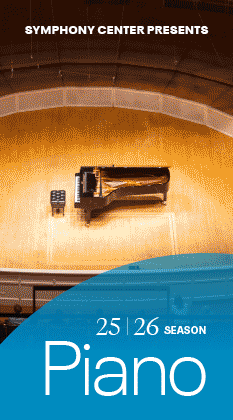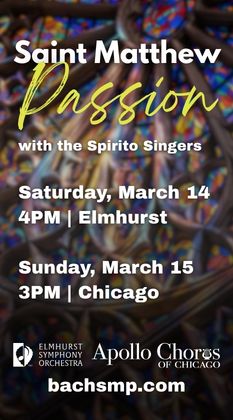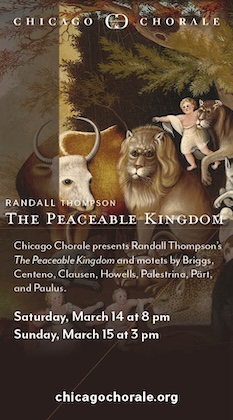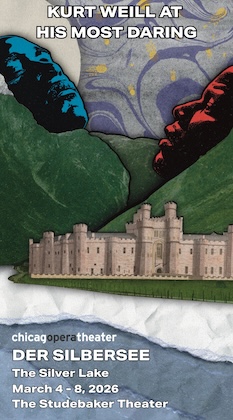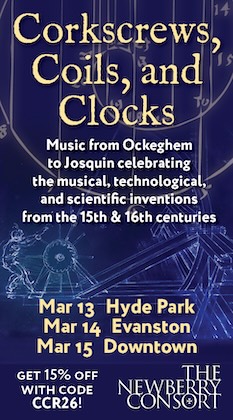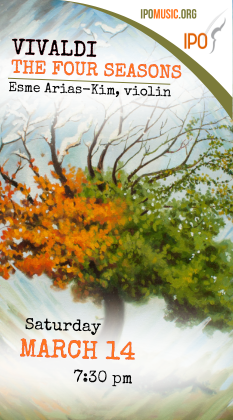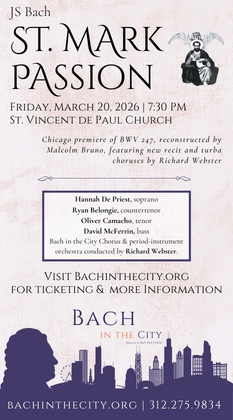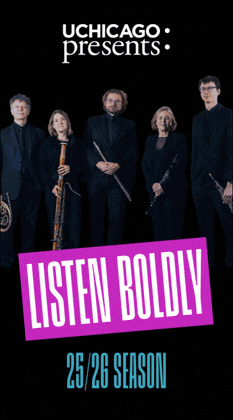Performances
Annual Handel Week Festival wraps in style with choral rarities
It has been a vexing season for any Chicagoan hoping to […]
Third Coast Percussion goes lean for premieres at Gottlieb Hall
Nova Linea Musica, one of Chicago’s most interesting new chamber music […]
Ives gets a belated yet commanding birthday tribute with Hamelin’s “Concord” Sonata
The 150th birthday of American visionary Charles Ives passed largely unnoticed […]
Articles
Top Ten Performances of 2025
1. Shostakovich: Symphony No. 11. Jakub Hrůša/Chicago Symphony Orchestra Jakub Hrůša […]
Concert review
Soprano provides the highlights in Egarr’s double-duty MOB debut
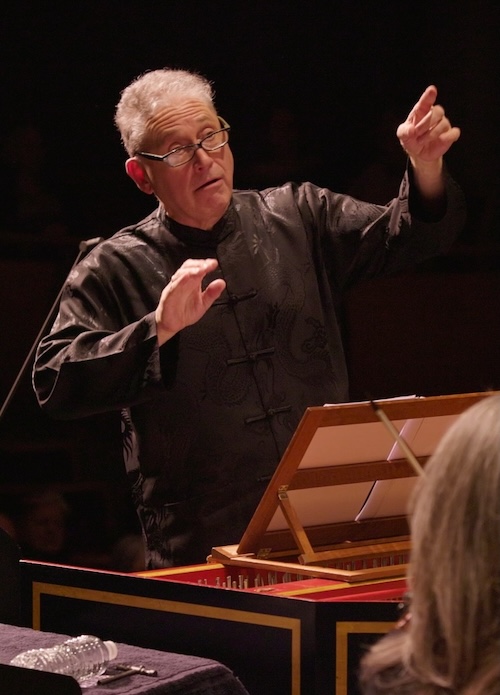
Bach’s Brandenburg Concerto No. 5 may have seemed like the reliable showstopper on the program for Monday night’s “Baroque Blockbusters!” concert from Music of the Baroque at the Harris Theater. How could it not be with Richard Egarr doubling as conductor and harpsichord soloist in his MOB debut? But the concert ultimately delivered on the promise of its title in Egarr’s collaborations with soprano Rowan Pierce in less familiar pieces by Handel and Purcell.
The solo complement in the Bach concerto consists of violin, flute, and harpsichord. It is the last of these whose contribution lingers most, since it plays a monstrously long and difficult cadenza in the first movement. which virtually creates the piano concerto as a genre.
Egarr handled the cadenza very well. Since the harpsichord cannot perform dynamic gradations, expression is largely a matter of pacing and articulation. Egarr began it in a dignified and stately manner, at odds with many harpsichordists, who cut loose from the outset. But then, Egarr ramped up the tension in the section filled with diminished sevenths, rapidly gaining enormous speed.
The other two Brandenburg soloists—co-assistant concertmaster Kevin Case and principal flutist Mary Stolper—played nicely off each other. They dovetailed their lines seamlessly in the second movement. And in the third movement gigue, they traded the dominant role between them without losing rhythmic verve.
The performance’s main liability was balance. Egarr chose to reduce the orchestra to just four players total: violin, viola, cello, and bass–the “one to a part” approach.
This can theoretically work. (Egarr’s own recording of the concerti with the Academy of Ancient Music is indeed one of the more notable executions of this vision.) But it did not work in the Harris Theater acoustic, in which the two instruments that faced away from the audience—the violin and viola—were virtually inaudible at times.
Part of what makes the first-movement cadenza so startling is that it represents the harpsichord breaking free of its typical subservient role. This effect is lost if—as in this performance—the harpsichord overwhelms the musical texture the entire time.
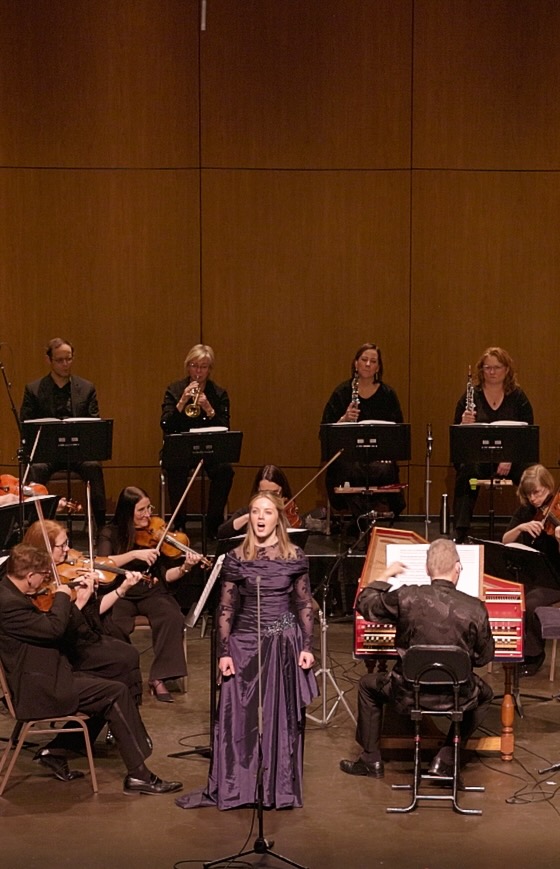
Rowan Pierce was the star of the remaining two pieces. First was Handel’s motet Silete, venti, one of only four pieces he wrote in the genre, and the only one from his mature London years. With its French-style overture and its multiple da capo arias, it is more like a solo cantata than like what is called a motet in other eras.
Pierce’s voice embodied many meanings of the word “clarity.” Her diction was crisp enough that one could catch every word even without the printed text. Her timbre was bright and focused. And her pristine coloratura was potently displayed in the closing “Alleluia,” in which she showed the variety of articulations she can bring to runs and trills.
Egarr conducted the motet with great tempo flexibility—unafraid to ritardando into or pause after any dramatic cadence. He got a rich sound from the orchestra (not just one to a part, this time). And he established good communication between Pierce and oboist Anne Bach during all the moments when one imitates the other.
The concert’s second half was given over to a suite of Egarr’s devising from Purcell’s The Fairy-Queen, a semi-opera that is rarely performed today, since (as Egarr noted) it takes nearly five hours when all of the masques and dialogue are included.
Egarr’s selections included several dances—including of fairies, haymakers, and “green men”—which he got the orchestra to render with colorful characterization, in one instance eliciting audible chuckles from the audience. The trumpets were also afforded a chance to cut loose in the “symphonies” from Act IV and V.
The most celebrated excerpt from The Fairy-Queen is “The Plaint: O let me weep!”, which many a Baroque soprano has used as a pretext for theatrical emoting. This was not Pierce’s style. Throughout the entire concert, her approach to the text was straightforward. Her phrasing and articulation were attentive to the words, yet she did not engage in rhetorical underlining. Instead, in this song as in the others, she simply let the natural beauty of Purcell’s melody and her own timbre speak for themselves.
Perhaps the most effective vocal selection in the Purcell half was “Ye Gentle Spirits of the Air,” which was a duet between Pierce and Egarr, on harpsichord. Their performance was beautifully paced, with effective ornamentation from Egarr that never threatened to overshadow the soloist.
Music of the Baroque’s season continues with “Vivaldi & Friends” on April 12 and 13. baroque.org
Posted in Uncategorized
No Comments
Calendar
March 4
Chicago Opera Theater
Weill: Der Silbersee
7:30 p.m. Studebaker […]
News
With a contract quietly renewed, MOB to offer a familiar mix of masterworks in 2026-27
Music of the Baroque released details of its 2026-27 season on […]
